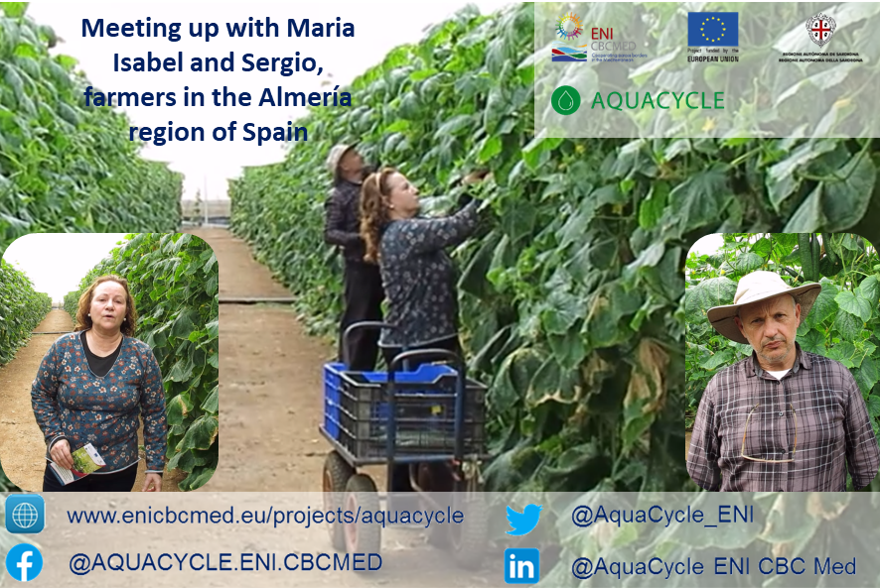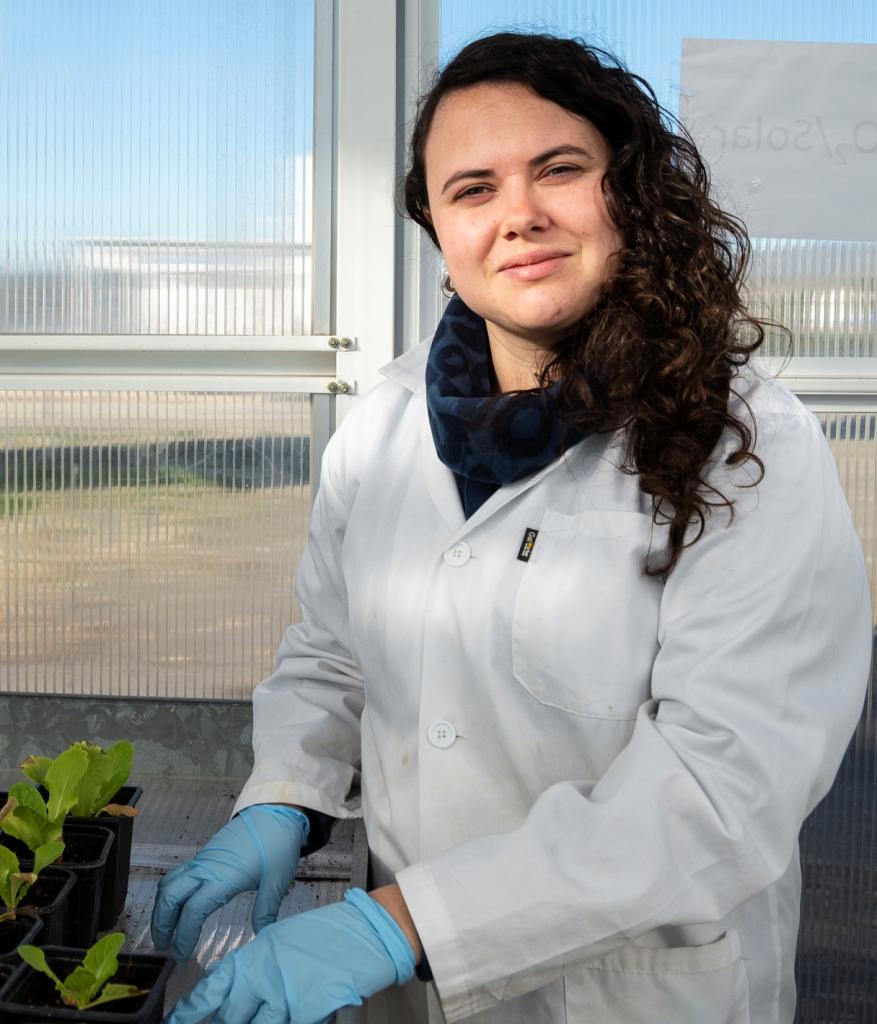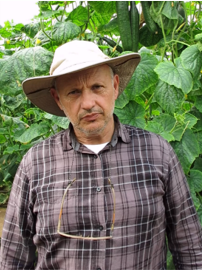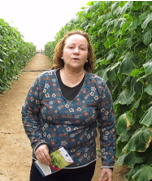AQUACYCLE meets up with Sergio and Maria Isabel, who till the land in the Almería region of Spain


Samira Nahim from PSA-CIEMAT in the AQUACYCLE Partnership wished to find out more about farmers’ dependence on groundwater in the Almería region of Spain, and how this dependence may have been affected by the impact of climate change. Samira also took with her AQUACYCLE’s promotional leaflet, to explain about the project’s eco-innovative wastewater technology so as to invite the farmers’ opinion about using treated domestic wastewater to satisfy their water requirements. Her interview with farmers Sergio and Maria Isabel took place on 11 February 2022.
Samira: Can you tell me who you are and what you work for?
Sergio: We are farmers and as a couple our work consists of the cultivation of cucumber in greenhouses in the framework of the intensive agriculture in Almería.
Samira: What is the surface area of your greenhouse?
Sergio: 22000 m2 cultivated by cucumber from the variety “Almería”.
Samira: What is the average production of your farm?
Sergio: 8 kg of cucumber per m2 in a cultivation period which runs from October to the end of February, but cucumbers are only harvested in the last three months.
Samira: What is the irrigation system in this greenhouse? How often do you irrigate and how much water do you use for each irrigation?
Sergio: To save water, the irrigation is by a drip line irrigation with inbuilt irrigation drippers. The irrigation takes place every other day, for about 30 minutes. The water already incorporates fertilizers and for each irrigation about 15000 litres of water are used.
Samira: What water source do you use and who provides it?
Sergio: It is aquifer water and it is sold and distributed to us by a community of irrigators.
Samira: Currently, do you have sufficient confidence with the water availability for the cultivation of your crops?
Sergio: At this moment we have water availability, but we are afraid that in the future this aquifer will dry up. Moreover, due to fact this is an intensive agriculture we are also afraid of its contamination due to the (intensive) use of fertilizers as happened previously with another aquifer.

At this moment we have water availability, but we are afraid that in the future this aquifer will be depleted.Sergio
Samira: Do you know if water is already being supplied to farmers through other alternative sources?
Maria Isabel: Yes, there are other alternatives, here mainly by the mixture of groundwater with desalinated water since Almería is a coastal region. But this method increases considerably the water costs.
Samira: In view of other cheaper alternatives to supply irrigation water, what do you think about the APOC technology of the AQUACYCLE project? Would you agree to implement and irrigate with water from this technology?
Maria Isabel: Yes, we are open-minded and we would agree to irrigate with urban wastewater treated by the APOC technology if it gives good quality to my crops and it is not very expensive as we must into account that farming is a business. Moreover, as another positive aspect, we are aware of the saving of fertilizers which this alternative would bring about.

Samira: Thank you both very much!
A write-up on the interview conducted with Mohamed Bahri, a farmer who tills the land in North Lebanon can be accessed through this link.









